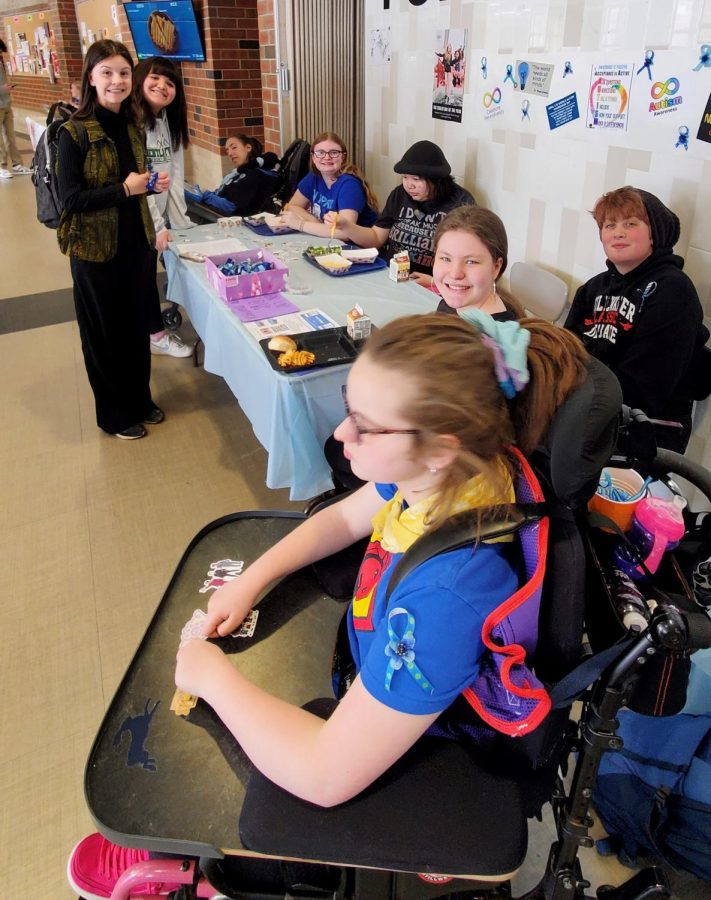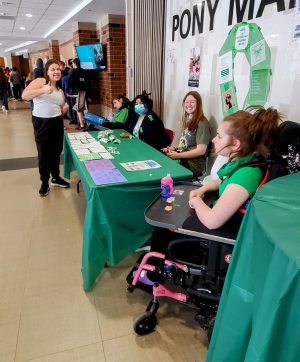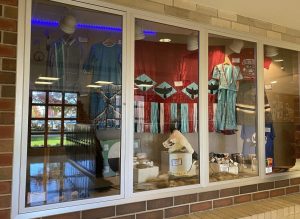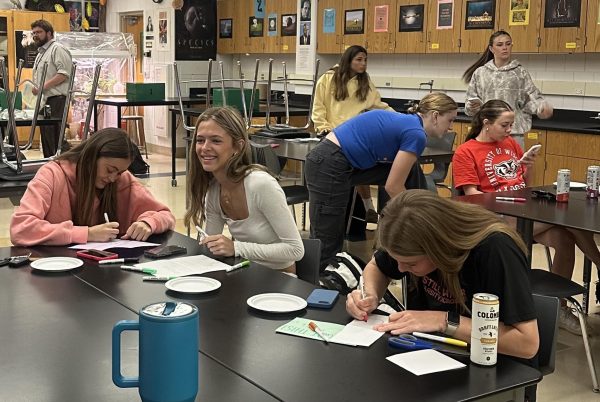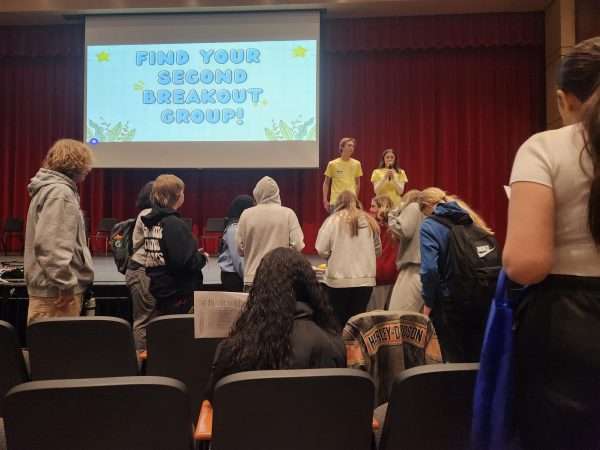Students promote acceptance, inclusion on World Autism day
Photo submitted by Lorrie Shortridge
Students spread acceptance for World Autism Day on April 3
Students wear BLUE in support of Autism awareness month.
April is Autism awareness month. The U.S. Senate declared April 2 as National Autism awareness day. The TRUST club hosted a table in the lunchroom on April 3 to hand out blue ribbons with a blue forget-me-not flower and stickers to recognize and celebrate autism awareness and acceptance.
Autism as a neurodevelopmental condition of variable severity with lifelong effects that can be recognized from early childhood, mostly characterized by difficulties with social interaction and communication and by restricted or repetitive patterns of thought and behavior.
Autism is considered a spectrum because it is different for every person with autism – some individuals with autism might need more support than others to live the lives they want to lead. The way autism affects a perosn can change as they grow, develop, and experience different environments. Individuals with severe autism, known as level 3 autism, means a person is nonverbal or has very limited speech and restricted social communication skills. Severe autism also often comes with sensory processing issues and extreme difficulty dealing with changes in routine.
Autism spectrum disorder (ASD) is one of the fastest-growing developmental disorders in the U.S. yet it is the most underfunded. In 2021, the Centers for Disease Control and Prevention Autism and Developmental Disabilities Monitoring Network determined that approximately 1 in 44 children in the United States have ASD. Boys are 4 times more likely to be diagnosed with autism than girls. Specifically, 1 in 35 boys are identified and 1 in 144 girls are identified.
Individuals with autism may see the world through a different lens. Some communicate using adaptive communication buttons that record some questions. Devin Norman is a senior in the ALC. He was diagnosed with autism when he was really little, “sometime before Kindergarten,” Norman said.
As he looks towards graduation he shared some of the things that affect his daily life. “I have always had sensory issues and it really helps me to have some sort of music on at a decent level,” Norman said. “If I don’t have music on, it can really throw off my day.”
When asked about what aspects of his autism he thinks makes him unique, Norman said. “I have a great sense of humor and my verbal intonations make me interesting to talk to.”
One of his special interests is in the arts. According to special education teacher Susan Sanders-Johnson, “Devin is especially talented in graphic design.”
Although Devin is not sure what will come after graduation for him, it sounds like he has a lot of interests to focus on.
Heather Jacobs, a special education teacher, has been working with students on the autism spectrum for 25 years.
“Working with students on the autism spectrum brings unique views that I would never have thought of or recognized.” “Their creativity and intelligence makes it fun to come to work everyday,” Jacobs said.
Stephen Mark Shore, an American professor of special education at Adelphi University in New York said, “if you’ve met one individual with autism, you’ve met one individual with autism.”
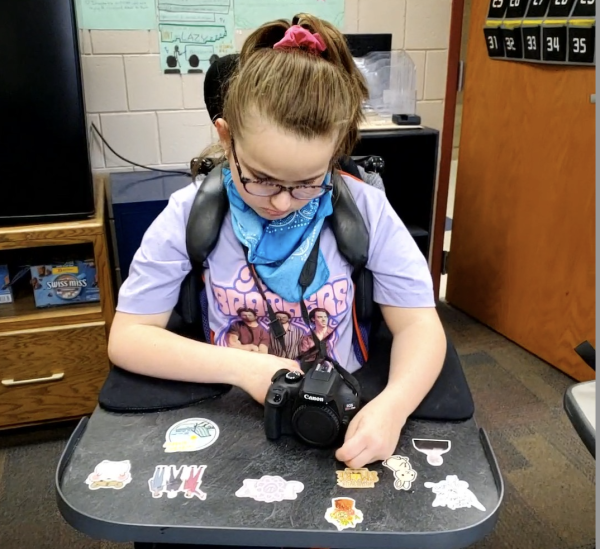
My name is Cathleen Costello. I am a sophomore and a photographer editor for the Pony Express. I am a member of trust club, a cheerleader on the adapted...


